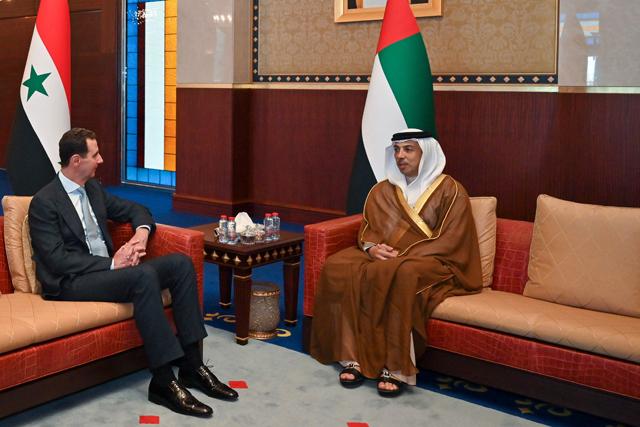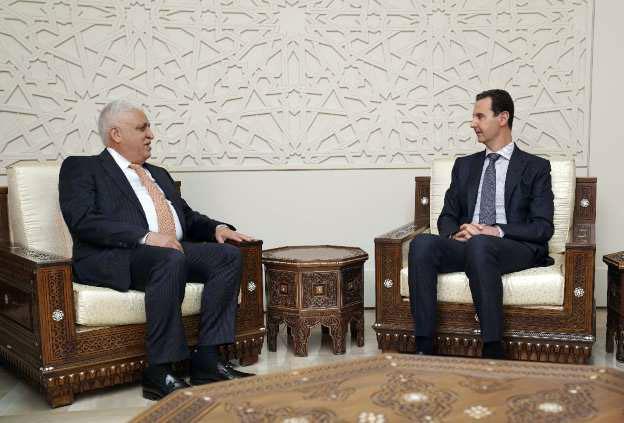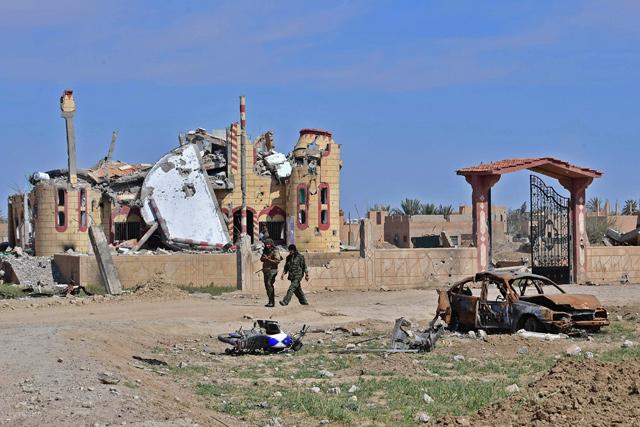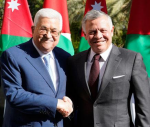You are here
UAE opens door for Assad's return to Arab fold — analysts
By AFP - Mar 20,2022 - Last updated at Mar 20,2022

This handout photo released by the United Arab Emirates' Ministry of Presidential Affairs shows Syria's President Bashar Assad (left) meeting with Sheikh Mansour Bin Zayed Al Nahyan, UAE deputy prime minister and minister of presidential affairs , in the capital Abu Dhabi, on Saturday (AFP photo)1
BEIRUT — A surprise visit by Syria's Bashar Assad to the oil-rich United Arab Emirates opens the door to his regime's return to the embrace of the Arab world, analysts say.
The president's trip also showed that a more assertive UAE is willing to upset its ally Washington with a rapprochement with Assad.
The Syrian president’s visit to the UAE capital Abu Dhabi last Friday was his first to an Arab state in more than a decade of brutal civil war.
Assad and Abu Dhabi Crown Prince Sheikh Mohammed Bin Zayed Al Nahyan, the UAE's de facto ruler, discussed the "fraternal relations" between the two countries, the official news agency WAM reported.
Washington was "profoundly disappointed and troubled by this apparent attempt to legitimise Bashar Assad," said US State Department spokesman Ned Price, who stressed that "we do not support efforts to rehabilitate Assad".
Badr Al Saif, a history professor at Kuwait University, said the UAE has pushed for Syria's return to the Arab fold "regardless of the role of the regime in the death and displacement of many Syrians".
He said the bold move reflects the way the UAE — a wealthy state that has militarily intervened in conflicts in Libya, Yemen and elsewhere — now sees itself as a regional powerbroker.
"The UAE's self-perception is at the heart of its policymaking," Saif said. "It sees itself as the leader of the Arab world, where it initiates and hopes the rest will follow.”
"Its reception of Bashar Assad is best understood in this light."
Overture to Damascus
When Assad first launched his crackdown on mostly peaceful demonstrations, plunging the country into civil war from 2011, most Arab countries severed ties with Syria.
Several Gulf states supported rebels fighting against Assad's forces. The regime had all but lost the war when Russia's military intervened on its side in 2015, allowing Damascus to regain most of the territory it had lost.
The UAE has made clear that it opposes the so-called Arab Spring movements, especially in Syria where Islamism, its biggest enemy, was gaining power through terrorist groups.
In recent years Abu Dhabi has led an Arab overture to Damascus as the Assad regime has consolidated power.
The UAE reopened its embassy there in 2018. Hours later, Bahrain said it planned to follow suit. Last November the UAE foreign minister, Abdullah Bin Zayed, visited Damascus.
The Syrian government, for its part, is desperate to revive economic ties with wealthy Arab states after years of war and US sanctions. At least 90 per cent of Syrians live in poverty and more than half have been displaced by war.
"Syria faces huge economic challenges and needs the support of Arab countries," said Bassam Abu Abdullah of the Centre for Strategic Studies at Damascus University.
'Quite a message'
The struggle over Syria's role is playing out in an era when the United States has signalled a strategic "pivot to Asia", and weeks after Russia stunned the world by launching its Ukraine invasion.
Assad's trip came shortly after a Moscow meeting between the Emirati foreign minister and his counterpart Sergei Lavrov, and weeks after Russia launched its war, which the Assad regime vocally supported.
The UAE and Saudi Arabia have shied away from taking sides, despite calls by Western allies to condemn Moscow, and also resisted pleas to boost energy output to bring down global prices.
Nicholas Heras of the Newlines Institute said the UAE, by embracing Assad, is positioning itself as "the powerbroker in the Middle East, and in wider Eurasia, that all sides to conflicts can turn to".
In fostering closer ties with Syria, the Emiratis "see an opportunity to broker a future order in the Middle East that stabilises the region, because Assad won his civil war and a nuclear weapons power backs him fully", he said.
The UAE sees Russia as "an important player in the Middle East for years to come, and a more predictable external power than the Americans", Heras added.
Al Saif, the historian, said the UAE's moves are actually in line with US calls for its allies in the region to assume more responsibility for their own security.
"The UAE has been engaging in just that, and it means there will not always be total alignment with the US as each state pursues its interests," he said.
He added that relations between the US and UAE, a strategic partner that has hosted American troops, will ultimately not suffer from the rapprochement with Syria.
Dalia Dassa Kaye, senior fellow at UCLA Burkle Centre for International Relations, pointed out on Twitter that the UAE-Syria normalisation had been underway for some time.
But, she added, "for the UAE to host this close Putin ally in the midst of the Ukraine war, where Russia is repeating its brutal Syria playbook, is quite a message".
Related Articles
DUBAI — Syrian President Bashar Al Assad held talks in the United Arab Emirates on Friday, his first official visit to an Arab country since
BEIRUT — Almost eight years into Syria's civil war, President Bashar Assad seems closer than ever to securing a comeback at home and in the
BEIRUT — Now the Daesh group's "caliphate" has fallen, the hard-won limited autonomy of Syria's Kurds will be left in peril if their key US

















